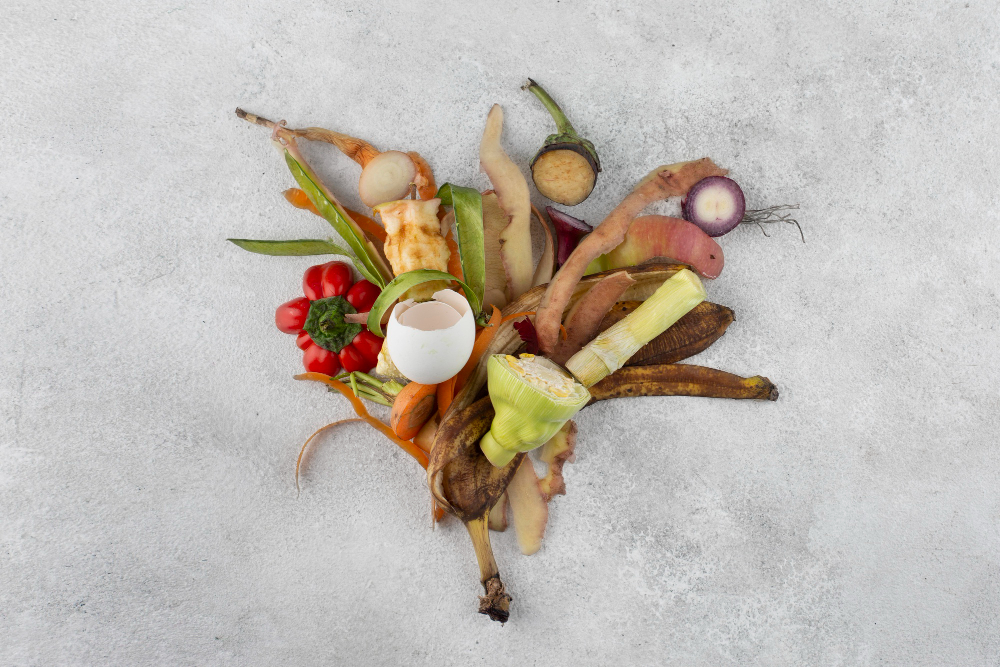
Did you know that the UK produces more food waste than any other European country? This begs the question, where does it all go? Unfortunately, most of it probably ends up in landfill. In fact, an estimated 97% of UK households do not own a compost bin/heap, and only 10% of UK households are estimated to take advantage of council schemes that pick-up food and garden waste [1].
The problem with this is not necessarily obvious. However, the action of putting your food scraps into general waste instead of a compost bin is likely to significantly increase your carbon footprint. Landfill is one of the largest sources of methane resulting from human activity, and food waste is a major contributor to its production. Importantly methane is a much more potent greenhouse gas than carbon dioxide with the ability to trap as much as 21 times the heat [2]. Furthermore, the high water content of food is likely to be partially responsible for the leaching of toxic compounds from landfill into the environment.
How does this compare to composting? Research has shown that the greenhouse gas emissions from waste decomposing in landfill is considerable higher that that when it is composted [3]. This is because during composting organic material (such as food or garden waste) is broken down by a variety of microorganisms. These reactions are often aerobic (meaning in the presence of oxygen), and produces non-toxic, nutrient rich soil. The constant addition of a variety of food materials creates an environment with plenty of oxygen and extremely rich and diverse in microorganisms [4]. This allows many different composting processes, compared to the very limited and oxygen restricted processes that can occur in landfill.
So, one way to live more sustainably and immediately decrease your contribution to the climate crisis is through changing there you put your scraps! Could you create a compost bin/heap in your garden, providing you with free nutrient rich soil and a sustainable means to get rid of your food waste. Or do you live in an area where food or garden waste is collected? These are simple ways to deal with your food waste, but perhaps a reduction in food waste could also be achieved. Freeze food when it is close to going-off, consider whether the carrots or potatoes really need to be peeled, and try meal planning so not to buy in excess. Remember… the Food Forage app has you covered with meal planning and plenty of sustainable recipes available at the touch of a button!
References
[1] Mark Hall; 97% of UK households don’t compost. Britain forgets the art of composting; BusinessWate.co.uk, 2014; https://www.businesswaste.co.uk/97-of-uk-households-dont-compost-britain-forgets-the-art-of-composting/
[2] Bijaya K. Adhikari, Suzelle Barrington, José Martinez; Predicted growth of world urban food waste and methane production; Sage Journals, 2006; https://doi.org/10.1177/0734242X06067767
[3] X.F.Lou; The impact of landfilling and composting on greenhouse gas emissions – A review; Bioresource Technology, 2009; https://doi.org/10.1016/j.biortech.2008.12.006
[4] Evgheni Ermolaev, Cecilia Sundberg, Mikael Pell, Håkan Jönsson; Greenhouse gas emissions from home composting in practice; Bioresource Technology, 2014; https://doi.org/10.1016/j.biortech.2013.10.049